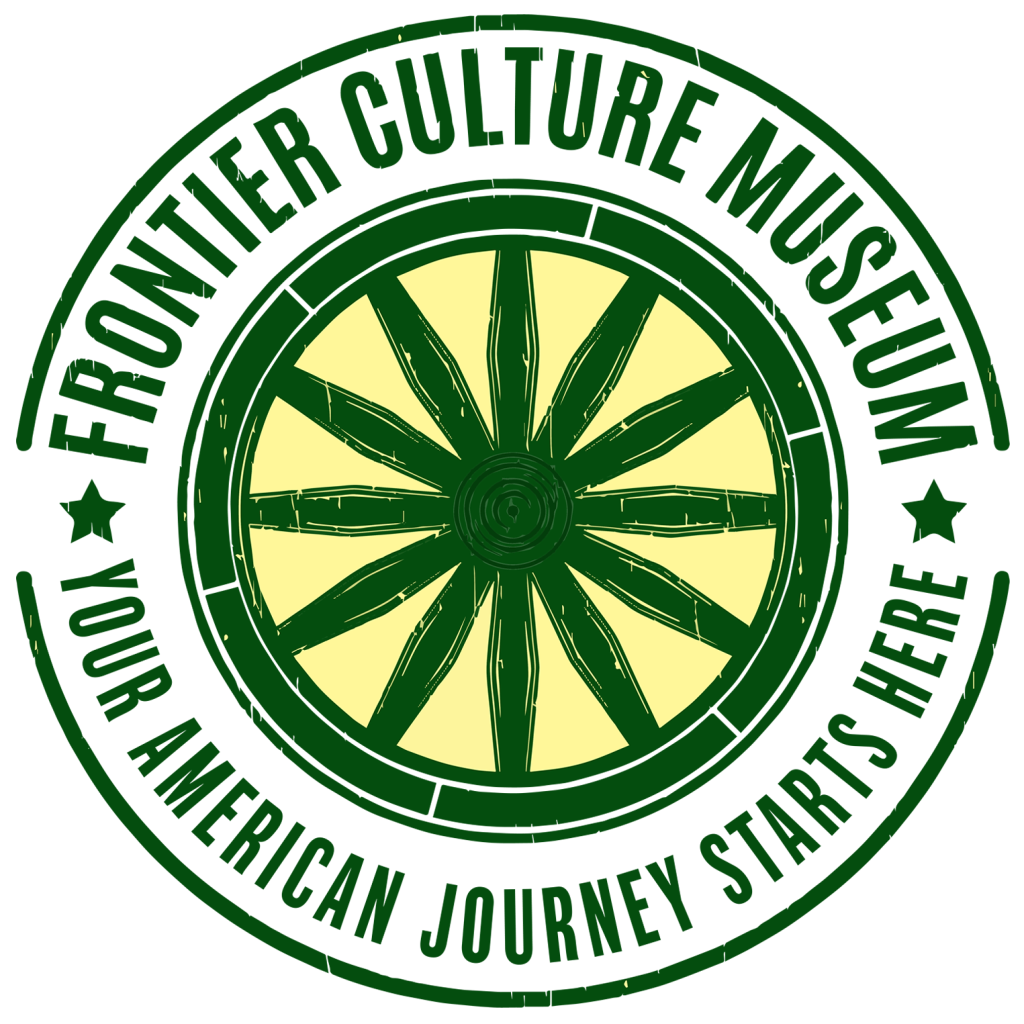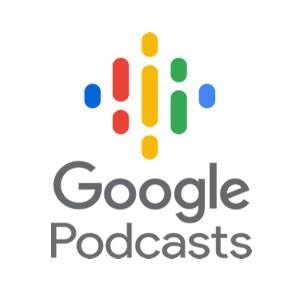Banjo Strings and Drinking Gourds:
How American Culture Came to Be
Listen Up
Another way for you to enjoy the Frontier Culture Museum is via our podcast, Banjo Strings and Drinking Gourds: How American Culture Came to Be. Throughout this ongoing series, we’ll be covering historic topics such as medicine, architecture, and art. You’ll also get a behind-the-scenes look at a living history museum.
Don’t Miss An Episode
You can find Banjo Strings and Drinking Gourds on Spotify, Audible, Apple Podcasts, Google Podcasts, Anchor, and more. We’ll be adding new podcasts about twice a month for 10 months each year. Hope you enjoy it! Please send us your feedback and suggestions for future podcast topics as well!
The Columbian Exchange
Have you ever looked at something on your plate and wondered how it got there? In this episode, our guest, Misti Furr, talks about the movement of goods between the Americas, Africa, and Europe that had a significant impact on the world, both positively and negatively. The Columbian Exchange goes far beyond the humble potato or peanut!
Revolutionary Rhetoric And Slavery
N.B.- This episode contains quotes from primary sources and may contain language considered offensive today.
Continuing on the topic of revolution and freedom, in this episode, we ask if the revolutionary rhetoric, the language used to discuss freedom from Britain, had any impact on slavery. Many founding fathers tended to compare British treatment of white male citizens of the colonies to slavery, yet slavery as an institution continued well into the 19th century in the newborn United States. Was there any sort of understanding of the hypocrisy involved? Did the prevailing themes of freedom and emancipation from Britain begin to echo in regards to race-based chattel slavery?
Also, please bear with us as the audio quality in this episode reflects our upcoming relocation of recording space.
What If The British Won The Revolution?
Have you ever wondered about how some events in history could have turned out differently? In this episode, we introduce a counterfactual, or according to the Cambridge Dictionary, “a mental simulation where you think about something that happened, and then imagine an alternate ending.” Just in time for the Fourth of July, our guests, Sam McGinty and Davis Tierney, discuss how the British could have won and what could have been the result.
The Haitian Revolution
Continuing our abolition series, Mark Mazzochi joins us to discuss the Haitian Revolution. While the revolt over slavery drastically impacted Haiti and it’s economic conditions today, it had a surprising effect on the rest of the world as well.
A Novel Idea: The History Of Fiction
It’s finally summer and that means it’s time to indulge in some vacation reading. But have you ever picked up that guilty pleasure book or the classic you swear you’ll make it through this year and wondered just how novels and fictional stories came to be? In this episode, we talk about how the art of fiction has changed forms over the centuries and just how the novel developed and proliferated. We’ll also talk about the chronology of each genre, and some of those will surprise you with how far back they go!
Immigration In Their Words
Have you ever wondered just how the interpreters at the Frontier Culture Museum are able to talk about the why and how people left their homes for America? In this podcast, we talk about, and read from, primary sources about immigration. Letters, diaries, memoirs and more provide a detailed look into not only the push/pull factors behind the decision to leave Europe, or indeed return home, but also the fierce propaganda wars that were being waged. Accounts from enslaved persons provide a counterpoint to the relative luxury of choice the Europeans had in deciding whether or not to relocate to the colonies.
The Pox That Changed Medicine
Smallpox is no joke. Having just experienced a world-wide pandemic of a virulent virus, we have a little more inkling about what people in the past faced with smallpox, but nowhere near on the same scale. Smallpox, while eradicated as an infectious agent at large, remains one of the deadliest diseases yet known. In this episode our guest, Lucy Abell, discusses just how dreadful smallpox was to historic populations, but also how smallpox was the inspiration behind our modern understanding of infections and vaccines.
Behind The Scenes: Making Clothing
Today’s episode takes you behind the scenes to our Costume Shop where our Costume Coordinator, Sam McGinty, researches, organizes, and produces the historically accurate clothing interpreters wear on site. Helping him are typically a quartet of interpreters who are familiar with or learning about hand sewing in a historic manner. Today, they discuss their current projects, how they produce garments for the interpreters, and their worst sewing mistake ever.
Hoaxes In History
Happy April Fool’s Day! In this episode, we treat you to some of the most infamous pranks and hoaxes in history. Everyone enjoys pulling the wool over someone’s eyes and some of these notorious pranks and pranksters achieved heights of greatness most of us can only aspire to.
Wordplay: Puns, Riddles, And Slang
How many times have you stopped a conversation to either groan at or admire a pun? We all drop inadvertent puns into conversation. Sometimes we don’t even catch them. Wordplay has been around as long as there has been language, but English really seems to lend itself to sly wit. In this episode, we discuss the rise and fall of the much maligned pun, playing with logic for riddles, and the advent of slang.
Coffee, Tea, And Chocolate
We all have our routines, whether it be to grab a cup of coffee on the way to work or indulge in a cup of tea in the afternoon. The luxury of our choices was surprisingly the same for colonial Americans. In this episode, we discuss the availability, popularity, and social context of each of the main non-alcoholic drinks of the 17th, 18th, and 19th centuries. You might be surprised by some of it!
How Cotton Changed The World, Part 2
In this second half, we discuss the changes cotton production brought to the United States. Mechanization and factory towns shifted the economics not only of sleepy agricultural communities, but the country as a whole. Of course, factory work brought its own significant problems, but we really can’t deny the long-term impact of cotton on the formation of the modern world.
How Cotton Changed The World, Part 1
There are a lot of things that have changed the world. The Roman Empire, the Age of Sail, the printing press, etc. But cotton usually doesn’t make that list. The unassuming seed of the cotton plant, covered in white, wispy fibers perfect for spinning into cloth isn’t usually considered a major player on the world stage. But in actuality, the industrialization behind the production of cotton textiles made massive changes to the very fabric (pun fully intended) of the modern world. In this first of two parts, we talk about the mechanization of cotton production and the economic and social impacts that reverberated through the world.
Historic Trades At The FCM
There are a lot of things that have changed the world. The Roman Empire, the Age of Sail, the printing press, etc. But cotton usually doesn’t make that list. The unassuming seed of the cotton plant, covered in white, wispy fibers perfect for spinning into cloth isn’t usually considered a major player on the world stage. But in actuality, the industrialization behind the production of cotton textiles made massive changes to the very fabric (pun fully intended) of the modern world. In this first of two parts, we talk about the mechanization of cotton production and the economic and social impacts that reverberated through the world.
Elizabethan Free Grammar Schools
Have you ever wondered how interpreters learn historic trades? Our guests today discuss how they learned, or are learning, historic trades like woodworking, tin smithing, and tailoring. They cover the historical context of their trade, just what contemporary tradesmen would be doing, how people learned historically, and how they themselves have learned.
When Christmas Was Banned
Did you know there was a time when Christmas was actually banned in England? Well, at least it was strongly discouraged. In this episode, we delve into the 17th century in England and just what was going on with Christmas, who the major players were, and some of the modern repercussions.
History Of Carols
Ever wanted to know the history of your favorite carols? This episode delves into the background of some of the best beloved carols. Some are more modern than you’d think, while others have a much older melody. So sit back with your favorite warm beverage and enjoy the history of Christmas carols.
Agriculture History: 18th And 19th Century America
In this episode, our guest, Naomi Akogwu, talks about her research into agricultural history and how our modern methods came out of the agricultural revolution of the late 18th and early 19th centuries. She details mechanization and methodological improvements happening at the time, as well as the growth of agricultural colleges and dissemination of knowledge available. She also covers the challenges facing modern agriculture and how the rise of homesteading is giving some hope for the future.
Forgotten Holidays
Welcome back to season three of Banjo Strings and Drinking Gourds! We have a fascinating season of episodes planned for you. This episode, we tackle some of the interesting and bizarre celebrations and holidays not often celebrated today. From agricultural based holidays to merry-making cobblers and smiths, this episode covers a wide array of time and space.





